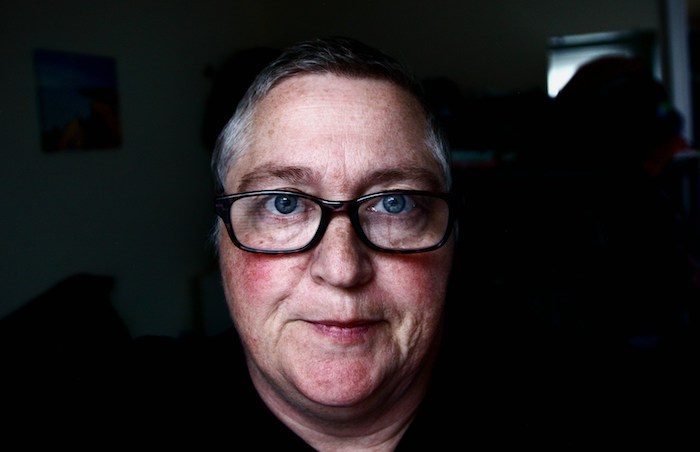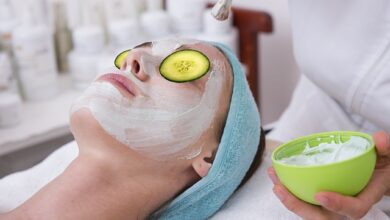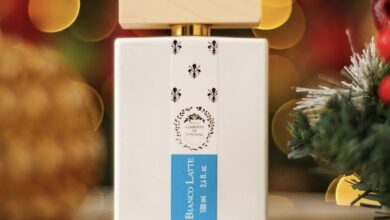Understanding Rosacea Flare-ups in Summer: Causes and Solutions

Rosacea flare-ups in the summer can be frustrating and uncomfortable.
Although the season brings warmth and sunshine, it often worsens the symptoms of this chronic skin condition.
Why does this happen and can you do something about it?
Causes of rosacea flare-ups in summer
It is usually one or more of the following factors that trigger a flare-up of rosacea in the summer.
Heat
One of the main causes of rosacea is heat. As temperatures rise during the summer months, increased heat can dilate blood vessels near the skin’s surface, leading to redness and flushing.
Sun exposure
The sun is another major trigger for rosacea flare-ups. Ultraviolet (UV) rays not only heat the skin directly, but also cause inflammation. This can worsen existing rosacea symptoms and lead to more frequent flare-ups.
However, keep in mind that this does not apply to everyone. In some people, brief exposure to the sun can improve symptoms. In a studyresearchers found little difference between people with rosacea and people without rosacea when exposed to UV light.
So keep an eye on your skin to see if sun exposure helps or hurts. Either way, it’s usually best to protect your skin from burning with a safe sunscreen such as zinc oxide or titanium dioxide.
Humidity
High humidity, which is common in many areas during the summer, can increase sweating. This in turn can cause flushing and irritation to sensitive skin.
Outdoor activities
Being active outdoors in the summer is good for your overall health. However, it can make rosacea symptoms worse if you’re not careful. Increased physical activity can lead to sweating and overheating, known triggers for rosacea.
Alcohol use
Summer often brings social gatherings and outdoor events, where alcohol consumption is more common. Alcohol is a known trigger for rosacea flare-ups due to its ability to dilate blood vessels.
Spicy food
Barbecues and picnics are popular summer activities that often involve spicy food. Ingredients like chili peppers can cause vasodilation and trigger rosacea if you are sensitive to them.
Preventing and treating rosacea flare-ups in summer
Try these tips to help your skin look and feel better during the warm summer months.
Protect your skin from the sun
As mentioned above, it is best to protect your skin with a broad-spectrum sunscreen with SPF 30 or higher, even on cloudy days. According to a study by the National Rosacea AssociationPatients who took steps to protect their skin outdoors were able to reduce the number of rosacea outbreaks. In the survey, 88 percent said their efforts had been successful or somewhat successful in reducing flare-ups.
In addition to using sunscreen during the day, remember to wear a wide-brimmed hat when outdoors and light-colored clothing that covers your skin. Umbrellas work well too!
Stay calm
Since heat is a common trigger for rosacea flare-ups, do your best to stay cool at all times. Whenever possible, choose shaded areas and air-conditioned areas. Dress in layers so that you can remove clothing if you start to feel overheated. Sip cold water. Use cooling facial mists or cooled, damp clothing to soothe flushed skin during hot spells.
Our Rescue + Relief Spray contains skin-soothing botanical ingredients that remove heat from the skin and reduce inflammation. It is formulated and proven to be effective on rashes, redness and acne caused by rosacea. It relieves stinging and swelling and leaves a cool, soft feeling. Keep it with you and use it throughout the day when skin is angry and stressed.
And because it’s non-comedogenic, it won’t worsen rosacea acne breakouts!
Maintain a regular skin care routine
The more you take care of your skin, the healthier and stronger it will be. This can make it more resilient to triggers that can cause a flare-up.
Choose skin care products for sensitive skin that are non-comedogenic. Doctors recommend avoiding irritants such as:
- scents
- alcohol
- acids such as glycolic acid and lactic acid
- camphor
- urea
The American Academy of Dermatology (AAD) recommends cleaning your face very gently twice a day. It helps remove oil and dirt that can worsen irritation. Make sure you choose a gentle, rosacea-friendly cleanser (not soap) and apply it gently with your fingertips, using circular motions. Rinse with warm water and pat gently with a clean towel.
Then use a non-alcoholic/astringent toner. Our Rescue + Relief Spray is perfect because it hydrates and soothes the skin, preparing it for your moisturizer.
Finally, apply our Calming Moisture. It is a soothing, lightweight and breathable moisturizer. It also helps immediately soothe redness and flushing while reducing inflammation while lightly moisturizing without clogging pores.

Hydrate the skin
Dermatologists agree that hydration is essential, whether your skin is dry or oily.
Keep your skin hydrated and hydrated with gentle, non-irritating products. Look for products labeled as non-comedogenic and fragrance-free to minimize the risk of irritation. You can use our Rescue + Relief Spray and Calming Moisture as often as you need to leave your skin feeling soft and supple.
When used regularly, these products help restore essential lipids, balance skin and build a strong moisture barrier to keep out impurities and irritants that can aggravate sensitive and rosacea-prone skin.
Deal with stress
Since stress is a known rosacea trigger, try incorporating a daily stress-relieving activity into your schedule. Good options include yoga, meditation, deep breathing, tai-chi, any form of exercise, pet therapy, music therapy, spending time with friends, crafting, and gardening.
Watch your diet
Pay attention to what you eat during the summer months. Avoid spicy foods, hot drinks and alcohol, and choose more cooling, hydrating foods such as fresh fruits and vegetables. Melons are perfect.
Stay hydrated
You want to stay hydrated inside and out, so bring water and drink regularly throughout the day. Even mild dehydration can cause flare-ups.
Use Rosacea-friendly makeup
The AAD Comments that makeup can trigger a flare-up of rosacea in some people. If you find this is happening to you, there are some things that can help.
First, apply a mild, fragrance-free moisturizer to your skin before applying makeup. Then use a light foundation or a tinted moisturizer that blends easily. Avoid waterproof makeup and heavy foundations.
Makeup artists often use Calming Moisture as a primer or mix calming moisture with foundation for their sensitive skin clients to keep inflammation and redness at bay.
Kristen Arnett, international makeup artist and clean beauty expert, says:
“Calming Moisture minimizes redness, hydrates and helps keep skin healthy, despite what is done during Fashion Week. Indeed – models love it!!”
Check your medications
Some medications can cause flare-ups under certain conditions. Ask your doctor if any of the medications you are taking could make you more vulnerable to flare-ups. Some options include medications used to treat:
- High bloodpressure
- Cardiovascular disease
- Tension
- Migraine
- Glaucoma
Consult a dermatologist
If your symptoms continue to get worse and none of these tips help, contact a dermatologist. They may have topical medications or therapies that can help you control the condition.
Conclusion
The two most important things to remember are patience and consistency. Make sure you keep your skincare routine moisturized and consistent, and be patient with yourself as you form new habits. Your skin will likely respond by feeling better and looking healthier.
How do you deal with rosacea flare-ups in the summer?
Featured image by Alexander Gray through Unsplash.





